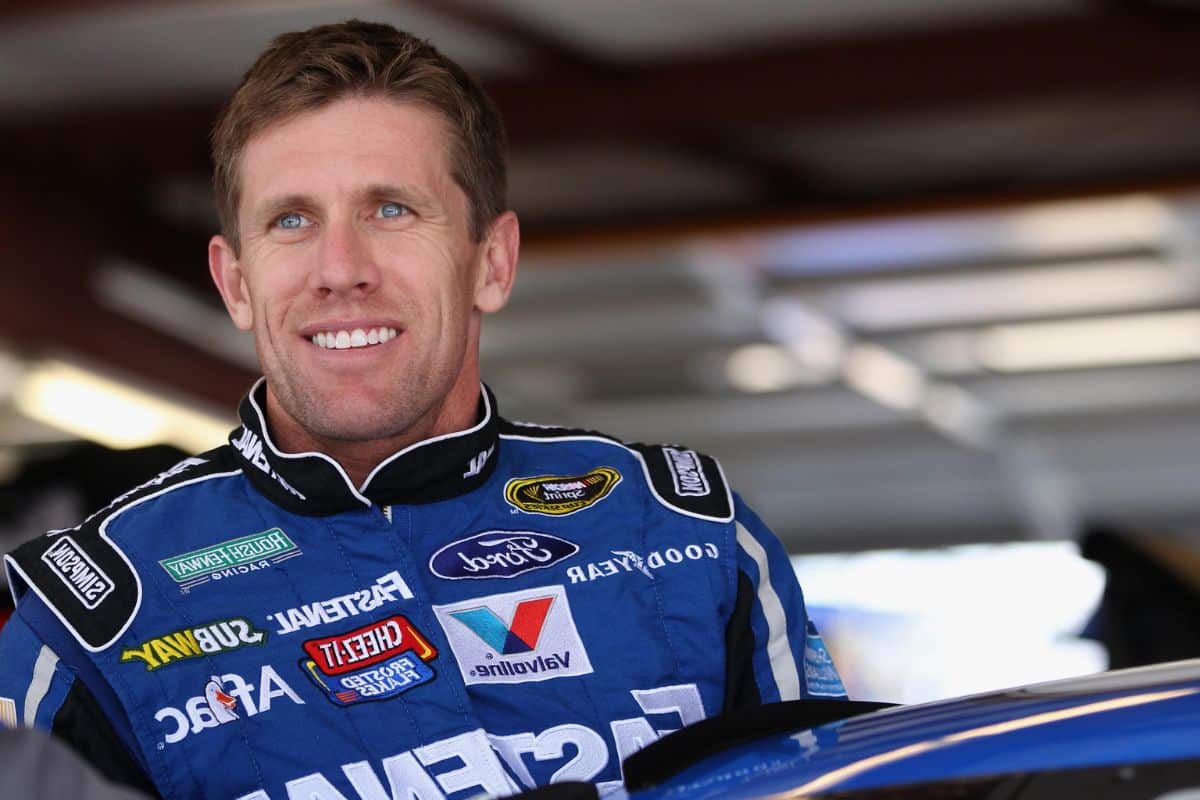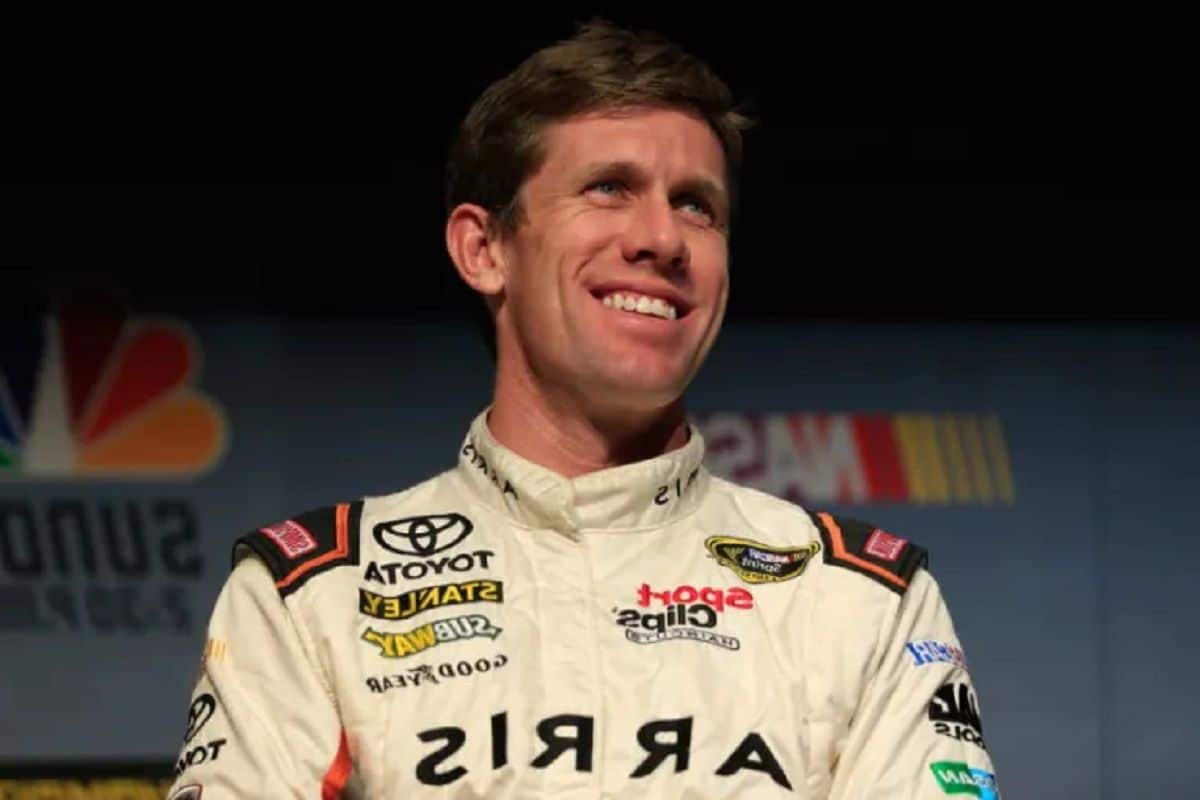Drivers with The Fewest Last-Place Finishes: In NASCAR, where every moment and decision can pivot a driver’s fortune, Carl Edwards, Kevin Harvick, and Joey Logano distinguish themselves with an extraordinary record of minimal last-place finishes. Edwards, with a singular last-place result across 445 starts, alongside Harvick and Logano, exemplifies not just raw speed but strategic expertise and resilience under challenges. This statistical rarity not only highlights their skill but prompts a deeper consideration of the factors contributing to such consistent performance.
Key Takeaways
- Carl Edwards is noted for only one last-place finish in his 445 career starts.
- Kevin Harvick’s career showcases minimal last-place finishes, emphasizing his consistent performance.
- Joey Logano also demonstrates a low number of last-place finishes, highlighting his competitive reliability.
- The few last-place finishes by these drivers reflect their high skill level and strategic race management.
- This statistical achievement supports the potential of Hall of Fame inductions for these drivers, especially for Carl Edwards.
NASCAR’s Least Last-Place Finishers
In NASCAR, a select few drivers have remarkably managed to minimize their last-place finishes, demonstrating both skill and consistency on the track. This unique distinction is not merely a factor of good fortune but a proof of the driver’s ability to navigate through the volatile dynamics of stock car racing, where mechanical failures, strategic errors, and on-track incidents frequently dictate race outcomes.
Analyzing the phenomenon of minimal last-place finishes requires understanding the multifaceted nature of NASCAR racing. Firstly, the quality of the team and equipment plays an important role. Teams that consistently provide well-prepared cars and top-tier mechanical support naturally reduce the risk of equipment-related failures that can relegate a driver to the back of the pack.
Secondly, a driver’s skill in avoiding on-track incidents, which often involves a deep understanding of race tactics and competitor behavior, is critical. This includes knowing when to push for position and when to hold back, effectively managing tire and fuel consumption, and navigating through crashes and spins without sustaining damage.
Moreover, the strategic intelligence of both the driver and their crew chief in adapting to changing race conditions—such as weather changes, track surface evolution, and varying traffic patterns—also contributes significantly to avoiding the last-place finish.

Drivers with the Fewest Last-Place Finishes
Among drivers with substantial careers in NASCAR’s modern era, Carl Edwards stands out with remarkably few last-place finishes, having ended in that position only once across 445 starts. This statistic not only highlights his consistent performance but also showcases a resilience that is rare in the NASCAR racing. Edwards’ ability to avoid last-place finishes speaks volumes about his strategic expertise and adaptability on different tracks, under different racing conditions.
Brad Keselowski, another notable driver with a laudable record, has seen only two last-place finishes in his 533 starts. Keselowski’s minimal last-place finishes reinforce his reputation as a persistent and tactical driver, able to navigate through the complexities of the race with a focus on maintaining a competitive edge.
Analyzing such data allows us to appreciate the intricacies of racing strategy and driver efficiency, providing insights into what separates good drivers from great ones. Both Edwards and Keselowski exemplify the pinnacle of strategic driving, maintaining high performance and consistency over numerous races, which is a reflection of their mastery of the sport.
Other Drivers with Remarkable Records
Exploring the records of other drivers, Kasey Kahne, David Ragan, and Ted Musgrave also demonstrate admirable resilience in NASCAR races, with remarkably few last-place finishes despite their extensive careers. Kasey Kahne, with 529 race starts, has managed to avoid the final spot in almost all of these contests, showcasing consistent performance and tactical expertise.
David Ragan, participating in 477 races, mirrors this reliability, maintaining a competitive edge and strategic insight that have kept him from the bottom rankings frequently seen by others with similar track time. Ted Musgrave, although having fewer starts at 305, still presents an impressive track record in the avoidance of last-place results.
In comparison, Jamie McMurray and Bobby Allison also exhibit remarkable records. McMurray, with 584 starts, and Allison, with 476, each concluded only three races in the last position. Their careers reflect a blend of skill, consistency, and perhaps critical race-day decisions that helped them avoid frequent last-place finishes.
Fewest Last Place Finishes
(Modern Era – 300 start minimum)This includes post-race DQs pic.twitter.com/AUFUUqQO8y
— Trey Ryan (@TreyRyan99) May 9, 2024
Carl Edwards’ Hall of Fame Nomination
Reflecting on a stellar career, Carl Edwards’ latest Hall of Fame nomination highlights his exceptional record of resilience and success in NASCAR. With 445 starts and only a single instance of finishing last, Edwards’ track record is not just impressive but indicative of his consistent performance and strategic expertise on the racetrack. This rare stat not only distinguishes him from many of his contemporaries but also emphasizes his mastery over the demanding conditions of competitive racing.
Edwards’ career is punctuated by significant victories such as the Southern 500 and Coca-Cola 600, marking him as a driver not only of skill but also of momentous achievement. Moreover, his 2007 Xfinity Series championship further solidifies his reputation as a versatile and formidable competitor across different NASCAR series. This blend of peak victories and sustained excellence forms a compelling case for his Hall of Fame candidacy.
As the Hall of Fame panel convenes on May 21, they are tasked with evaluating not just the statistics but the enduring impact of a driver like Edwards who chose to retire in the prime of his career. His decision to step away at 37, at a high point in his career, adds a unique dimension to his legacy. It highlights a career that, while perhaps shorter than some, burned brighter than many, characterized by a high degree of professionalism and an unyielding commitment to excellence.

Hopes for Hall of Fame Induction
The anticipation surrounding Carl Edwards’ potential induction into the Hall of Fame is noticeable, especially given his remarkable record of minimal last-place finishes, a distinction shared by few drivers, including the already inducted Bobby Allison. This statistical achievement not only highlights Edwards’ consistent performance but also his ability to avoid terminal mishaps, which often compromise a driver’s race and, by extension, their career metrics.
As the Hall of Fame induction approaches, the comparison between Edwards and Allison becomes particularly evident, emphasizing a shared resilience that transcends individual races to define a legacy.
Analyzing Edwards’ career through the lens of Hall of Fame criteria, his record aligns with the precedent set by Allison. The Hall of Fame selection committee has historically valued consistency and longevity, attributes that Edwards’ record exemplifies. His adeptness at steering clear of last-place finishes speaks to a strategic expertise and a mastery of racecraft that are hallmarks of a Hall of Fame-worthy career. Additionally, Edwards’ influence extends beyond the track, as his professional demeanor and sportsmanship have set a standard for conduct in the sport.

News in Brief: Drivers with The Fewest Last-Place Finishes
The minimal last-place finishes recorded by Carl Edwards, Kevin Harvick, and Joey Logano emphasize their exceptional proficiency and resilience within NASCAR. Their ability to maintain high performance levels, avoiding the pitfalls that often lead to poor finishes, highlights not only their driving skills but also strategic expertise.
Such records contribute greatly to their reputations and legacies, potentially influencing their consideration for accolades like the Hall of Fame. Their careers exemplify sustained excellence in a highly competitive sport.
Also Read: Kevin Harvick’s Luigi Jab on Reddick Suggests Potential Enmity

